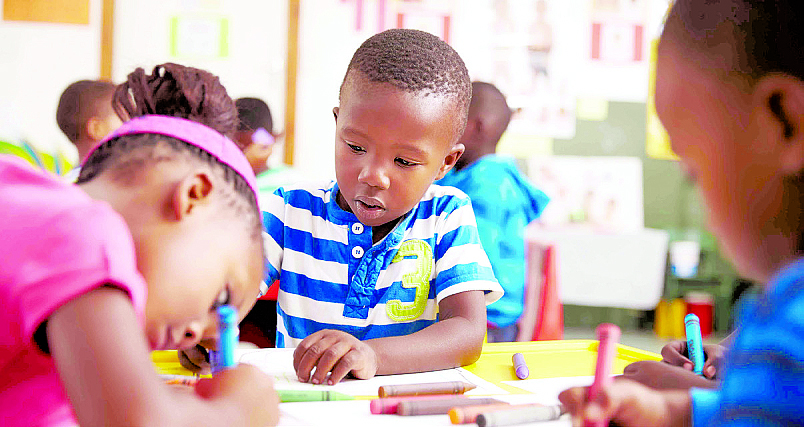(This article was first published in the New Vision on November 30, 2022)
By Ibrahim Ruweza
kindergartens for their children set to begin school next year, John Chrysostom Muyingo, the Minister of State for Higher Education, has said the Government has developed a plan to guide its “deeper involvement” in the delivery of nursery education.
The minister said pre-primary lays a strong foundation for a child and cannot be left to the private sector.
“Nursery is an important part of education. We have a very good plan for it, which I cannot discuss before it is approved by the Cabinet,” Muyingo said.
He was speaking to New Vision following a call last month by specialists in early childhood care and education for the Government to start running nursery schools.
The specialists made their request to the Government before the ongoing Education Policy Review Commission.
Each government nursery school, they said, should be attached to a public primary school to give the opportunity to children across the country to receive pre-primary education.
While the Government does not provide early childhood education now, Muyingo said it would continue to set frameworks within which nursery schools should operate.
“The children in nursery schools do not need to be given a lot of academic work like homework and taking them to school very early.
This can have bad effects on the children’s brains, which may not be corrected later,” the minister said.
Holistic Child Development
Muyingo said individuals who are currently running nursery schools should also not focus on making money alone, but should deliver the type of learning that can contribute to the holistic development of children.
“We are currently providing nursery schools with human resources by training teachers so that pre-primary education can thrive. We know early childhood development is important,” Muyingo said.

There are over 10 million children in school who are in primary and around two million in pre-primary, according to the 2019 education ministry report. Most of these children are in primary schools offering free education, mainly in rural areas. Many children in rural areas do not attend nursery education because kindergartens are concentrated in urban areas, targeting parents with the ability to pay for nursery education. While children in urban areas enter preprimary institutions aged between three and four, many of their counterparts in rural areas begin school in primary at the government recommended age of six years.
A 2020 study by the National Planning Authority found that the central region has the majority of nursery schools, while regions with the biggest number of children missing out on nursery education include Karamoja, Teso, Busoga, Bukedi, West Nile and Kigezi.
Lydia Mubiru, a specialist in early childhood care and education, said a lack of opportunities to attend nursery education impact a child’s development and is responsible for poor learning outcomes among some children.
Run Nursery Education Strategy
George Kasule, an associate professor of teacher training at Kyambogo University, welcomed the plan for the Government to get more involved in early childhood education, but said nursery education should be run separately from primary schools to be able to function well.
“The pre-primary classes must be manageable in order to have effective teacher training while also ensuring that children benefit from learning. This includes establishing a teacher-child ratio of 1:25 in each class and having two teachers in each class to support supervised learning,” he said.

